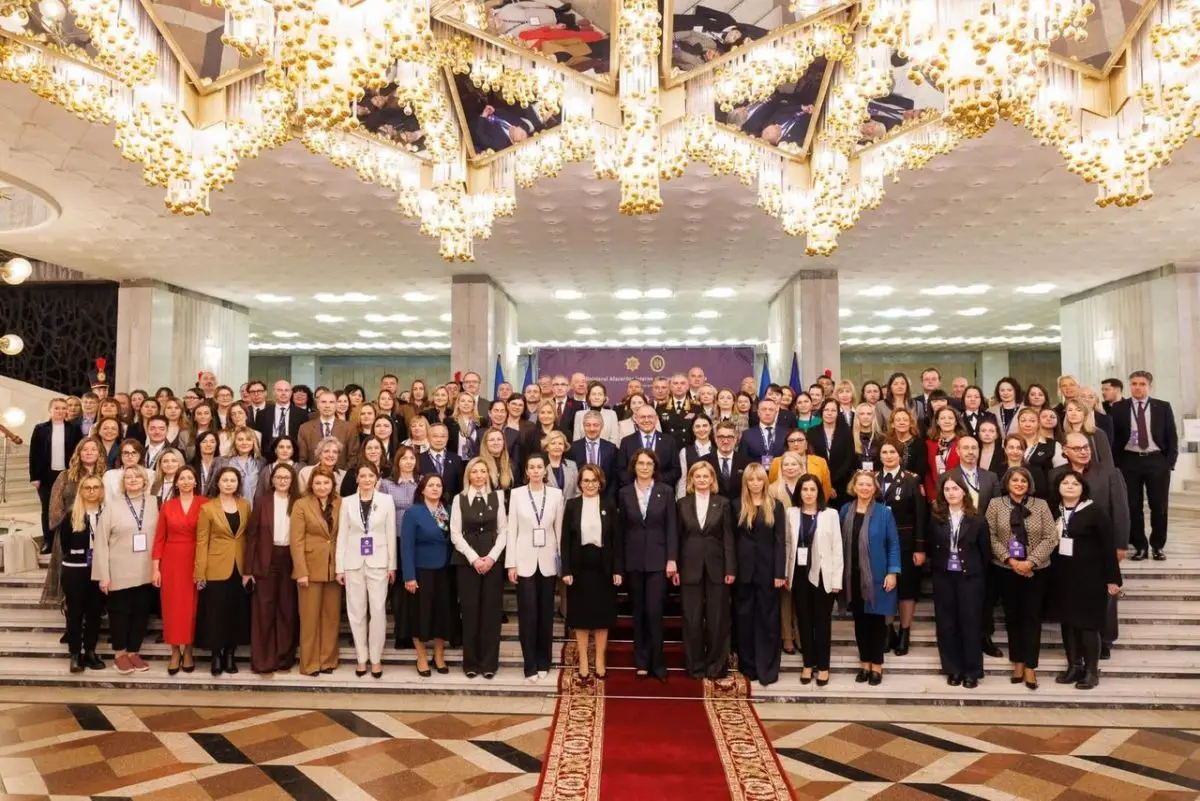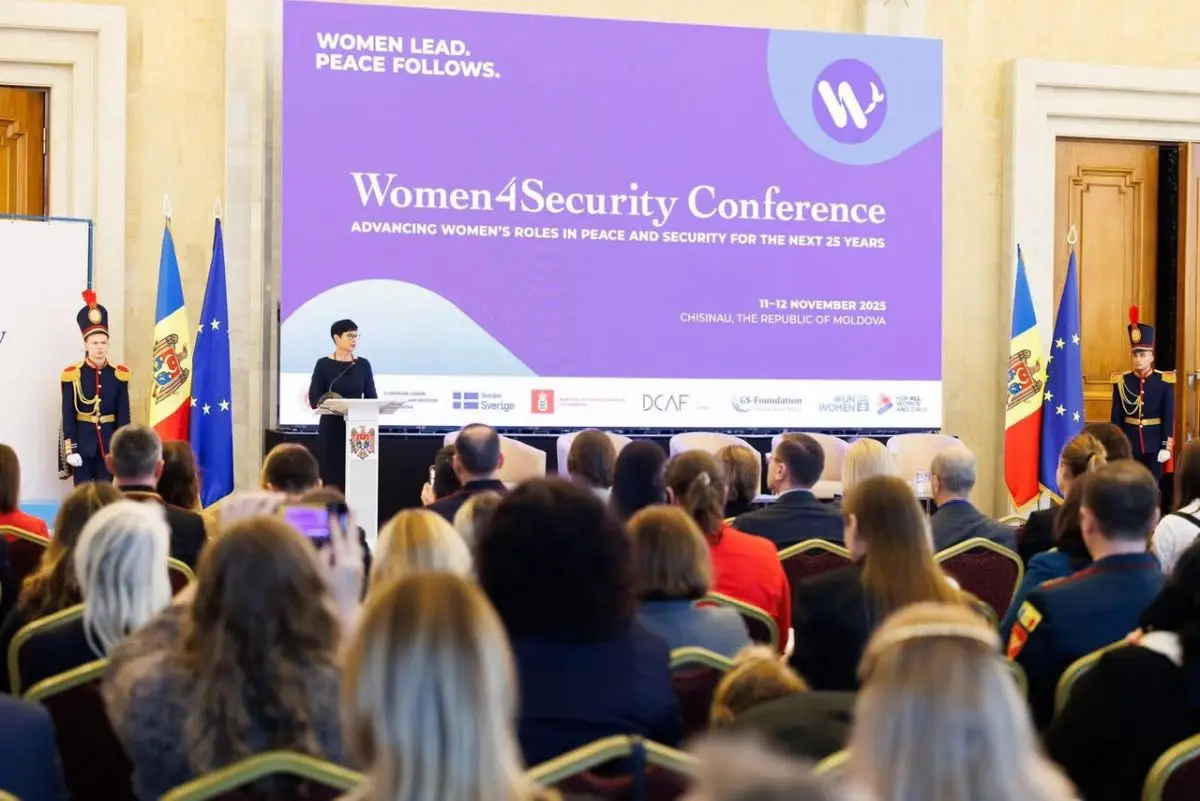Minister without portfolio in charge of gender equality, prevention of violence against women and economic and political empowerment of women Tatjana Macura stated today in Chișinău that both Serbia and Moldova are committed to the process of European integration, and that joint action and partnership in the field of women’s empowerment can further contribute to this process.
- Serbia
Get to know Serbia
- Citizens
Culture and science
Health services
Pension and disability insurance
- Business
Employment
Economy
- Media
- Government
- Contact
Keep in touch
Keepin touch
Whether you have a question, comment, suggestion or any problem in the purview of the government, send us your message and we will try to respond as soon as possible. If your problem is not in our purview, we will forward your message to the relevant institution.
Serbia, Moldova as examples of good practice in field of gender equality
Macura underlined that Moldova and Serbia currently serve as examples of good practice among candidate countries.
She pointed out that in Moldova, both the head of state and the minister of the interior are women, and that a large number of women are active in political life. Serbia, on the other hand, has already achieved significant results in the field of women’s political participation.
She recalled that, according to the Women’s Power Index, Serbia is ranked 22nd in the world, 11th in Europe and first in the region, which, as she noted, confirms the country’s continued progress in strengthening gender equality.
Macura is visiting Chișinău, where she is taking part in a conference dedicated to enhancing the role of women in the fields of security and peace over the next 25 years, opened by Moldova’s Minister of Internal Affairs Daniela Misail-Nichitin and European Commissioner for Enlargement Marta Kos.
She addressed a panel dedicated to building partnerships between governments, civil society organisations and international donors, noting that Serbia has developed strong cooperation with numerous international organisations, primarily United Nations agencies and the Delegation of the European Union to Serbia.
Macura recalled that the office she heads supported 82 civil society organisations last year, allocating one-third of its total budget for that purpose, and as many as 104 organisations this year, confirming a clear intention to continue building partnerships.
She concluded that the participation of women in political and economic life, as well as in the areas of peace and security, is one of the priority goals of the Government of Serbia, expressing confidence that such an approach will continue in the future.
-
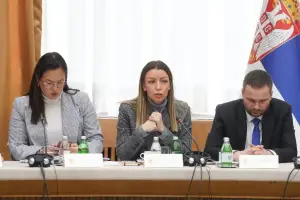 Belgrade, 22 January 2026
Belgrade, 22 January 2026Electricity supply in Serbia stable
-
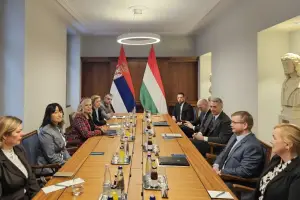 Belgrade/Budapest, 21 January 2026
Belgrade/Budapest, 21 January 2026Belgrade-Budapest high-speed rail of strategic importance for region
-
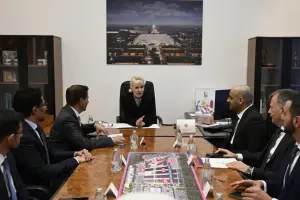 Belgrade, 21 January 2026
Belgrade, 21 January 2026Further strengthening of economic relations with UAE
-
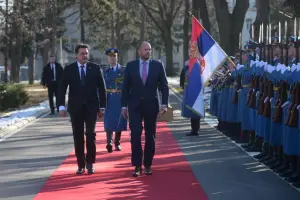 Belgrade, 20 January 2026
Belgrade, 20 January 2026Significance of return of Belgian armed forces to KFOR Mission in Kosovo and Metohija
-
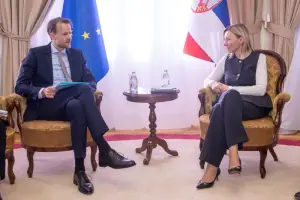 Belgrade, 20 January 2026
Belgrade, 20 January 2026Continuation of cooperation with EU to strengthen democratic processes
-
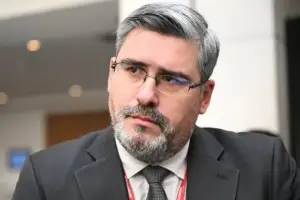 Belgrade, 19 January 2026
Belgrade, 19 January 2026European Union remains Serbia’s strategic development framework
-
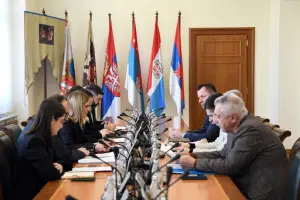 Belgrade, 19 January 2026
Belgrade, 19 January 2026Reconstruction of Blue Tomb memorial complex to be carried out this year
-
 Belgrade, 19 January 2026
Belgrade, 19 January 2026Serbia stands with Spain following tragic train accident
-
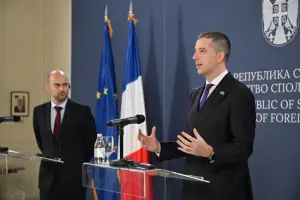 Belgrade, 16 January 2026
Belgrade, 16 January 2026France confirms support for Serbia’s reforms, European path
-
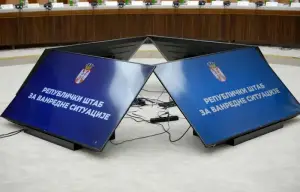 Belgrade, 16 January 2026
Belgrade, 16 January 2026Taking measures to repair damage in areas affected by severe weather

